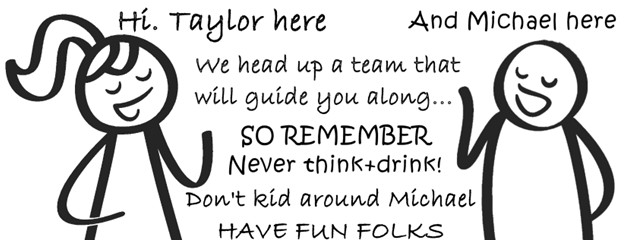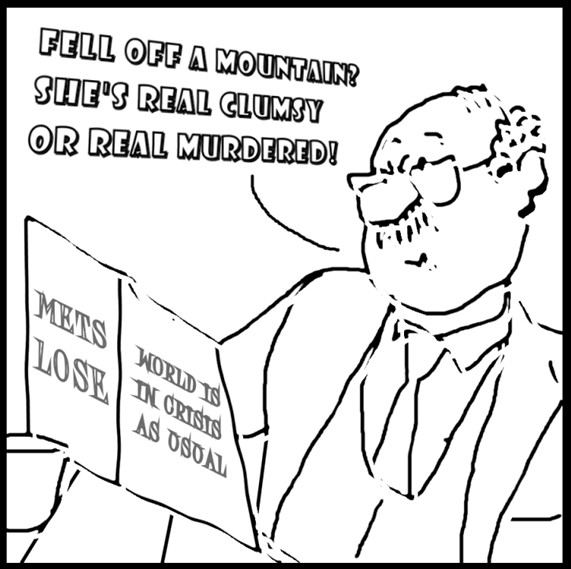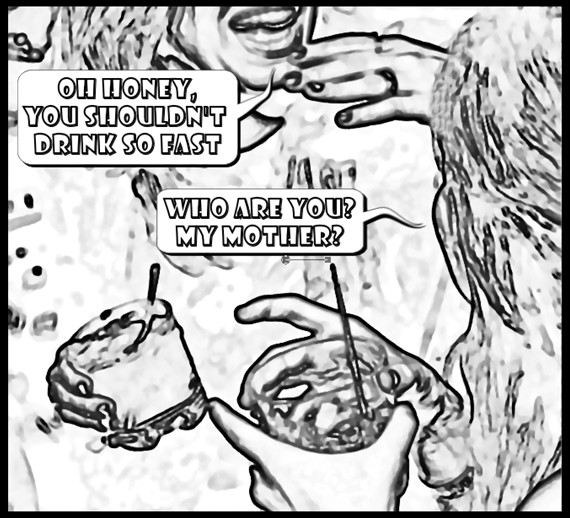A complete 20-minute preview of the author’s upcoming book (Peckerheads) is here.
(From Peckerheads)
In the beginning was the Word, and depending on who you believe the word was either God or zilch. We either derive from a Big Guy or a Big Bang. In either case, human beings began on a level playing field, meaning that the Academy was technically correct, in that equality—at a zero level—was once the norm. Religionists might say we’re all equal in the eyes of God, perhaps because we’re a bunch of sinners. Or less biblically, peckerheads.
In a mere 199 words, Genesis 1:26 to 1:30, God made man in His likeness, and then woman, gave them dominion over plants and animals, and commanded them to reproduce. But that’s only the trailer for the story of Adam and Eve, told in Genesis 2:4 to 3:24 and summarized below.
God created Adam and placed him in the Garden of Eden with only one restriction; that he not eat from the tree of the knowledge of good and evil. If Adam did he would die. God then created Eve to be Adam’s companion. Adam and Eve were unashamed of their nakedness until a snake convinced Eve to eat the forbidden fruit, which she shared with Adam, whereupon they felt shame and covered up with fig leaves. Adam told God that Eve had given him the fruit, and Eve told God the snake had tricked her. As punishment, God made snakes and humans enemies, made childbirth painful, and made men toil for their food. God then expelled Adam and Eve from the Garden.
The Almighty had previously commanded the two of them to reproduce, and we know it’s a sin to defy God’s will. Yet the Bible contains no reference to conception or birth until Genesis 4:1, well after Adam and Eve’s expulsion from Eden. In other words, there’s no record of a single conception or birth in the Garden, even though we have to assume that Adam and Eve were following God’s directive to multiply.
We’re forced to conclude that Adam and Eve broke Eden’s one and only rule posthaste. As soon as God made man and woman in His image, they violated His sole edict. Now imagine being the first man or woman. If God spoke directly to you and commanded you not to eat this one particular item, would you say, “I’ll see what I can do”?
And what kind of father tells a child “Don’t do X,” then follows with, “because if you do, Y will happen”? That would be allowing for, if not insinuating, X. God forbids Adam to eat the fruit then adds, “for in the day that you eat of it you shall surely die.” Why mention the day that you eat of it? The Lord might as well specify next Tuesday and ask Adam to mark it in his planner.
When God confronts Adam he blames Eve. Eve blames the snake. God had warned Adam he would die if he ate the apple, but as if that weren’t punishment enough, He serves up more. He makes enemies of humans and snakes, then saddles women with painful childbirth and men with toiling to eat. Adam is kicked out of Eden and will work for food. He’s the ancestral homeless person.



